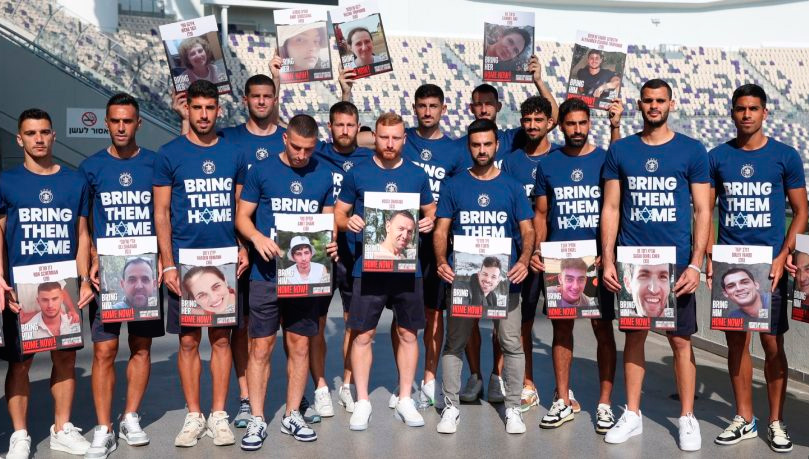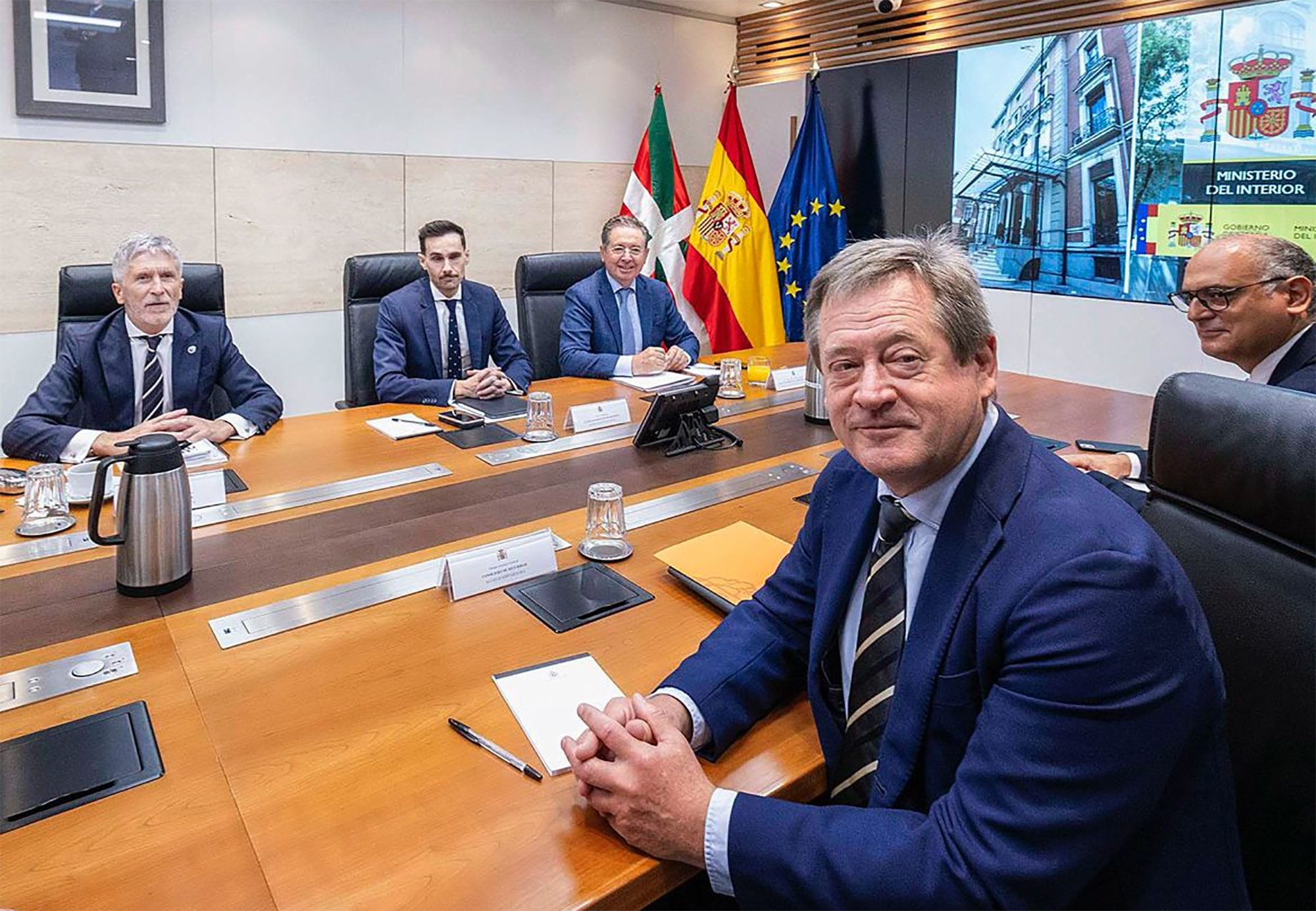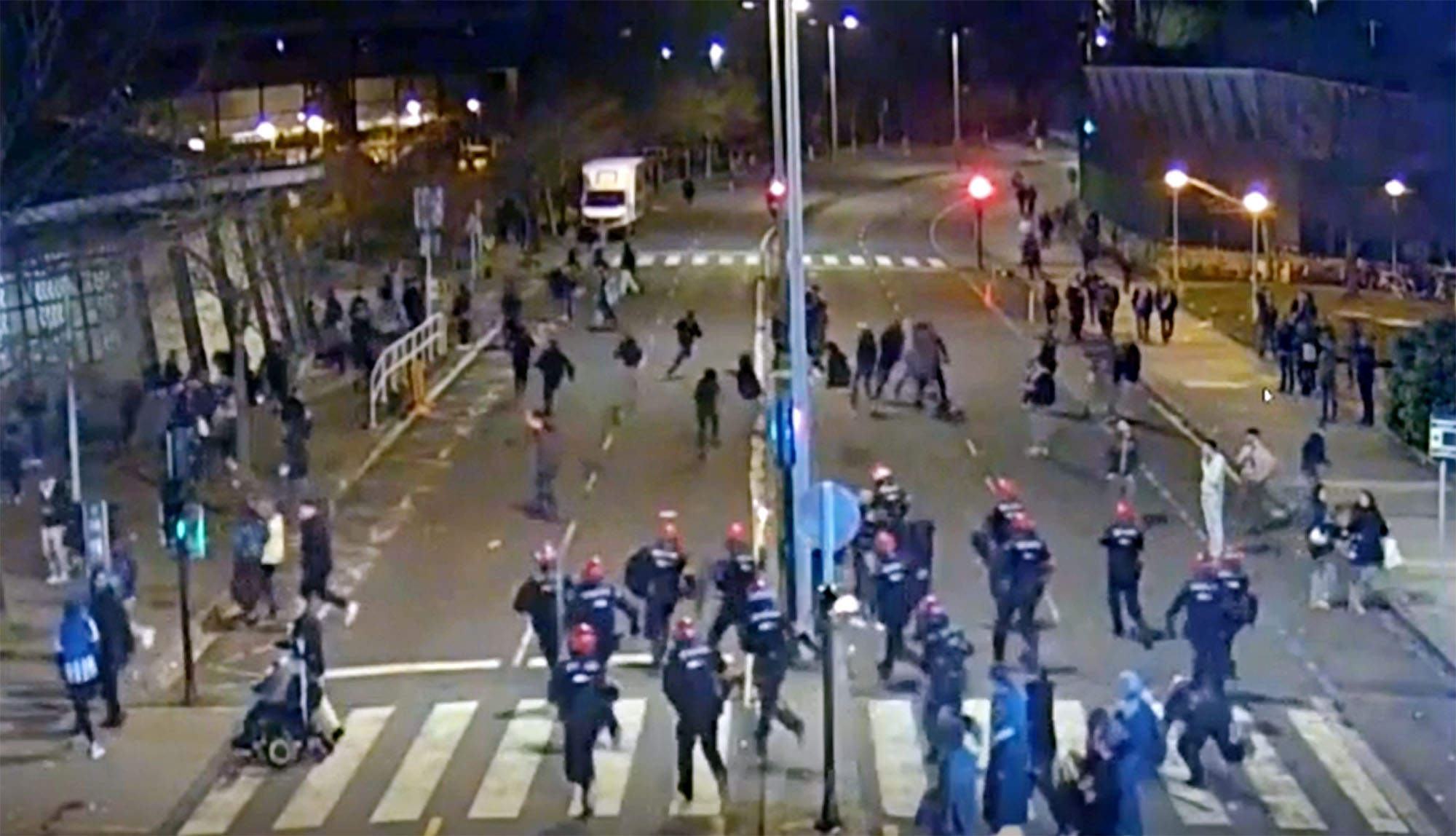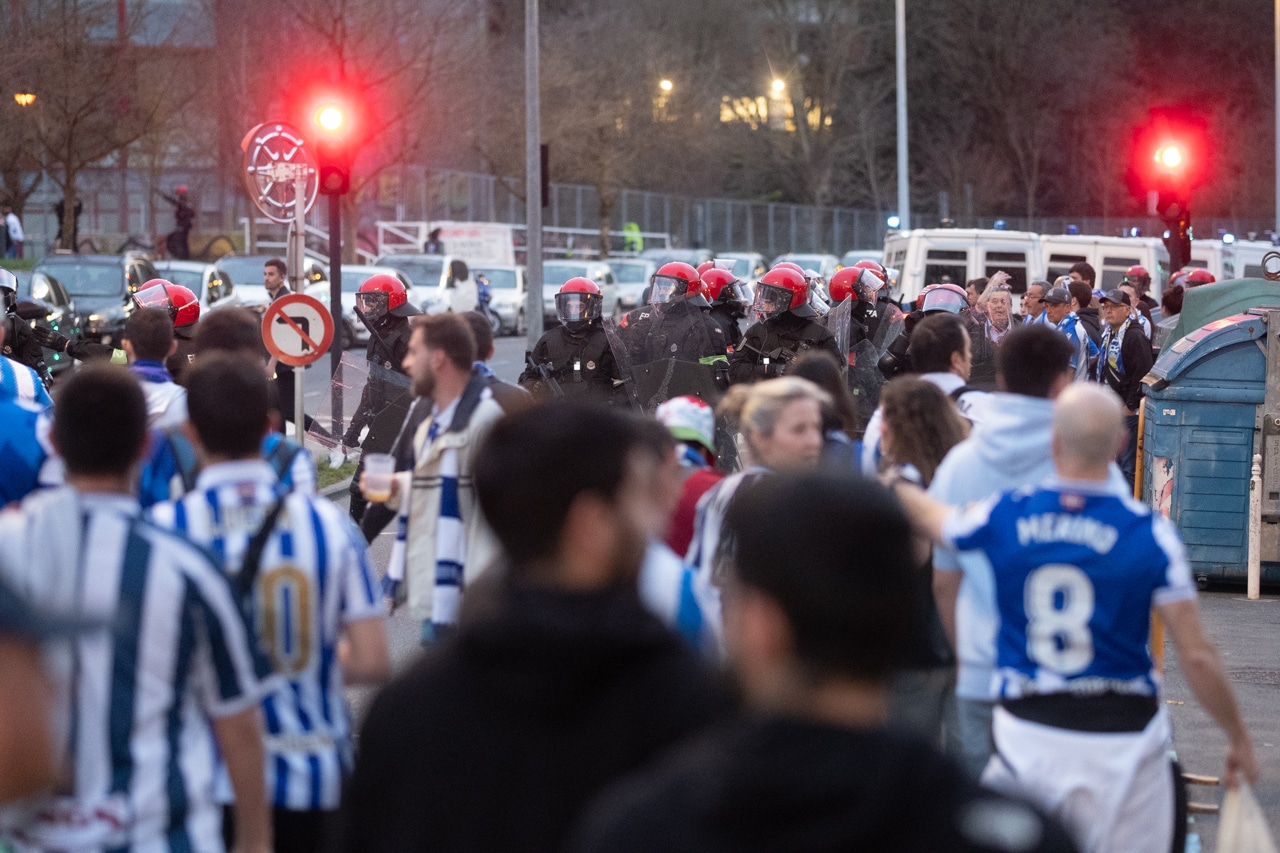"At the top level, there are too many things that have nothing to do with the game."
- “I feel natural what I do and what I feel natural to do...”
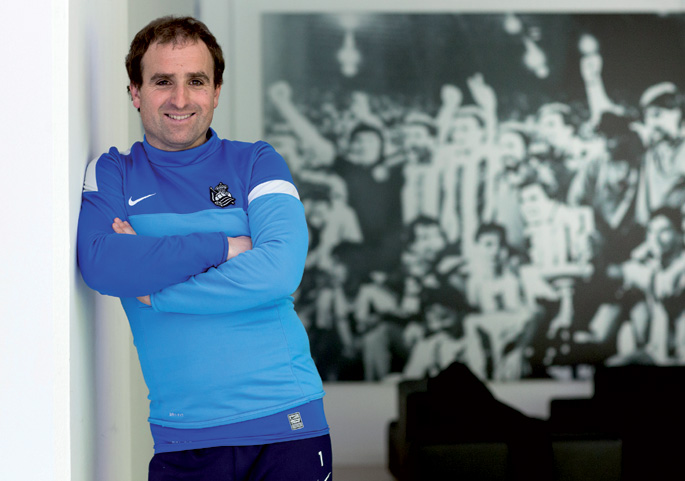
In the 1980s, in Berriatua...
The prototype of the Charlatan at the time had three characteristics: zestalist, amateur for Athletic and Gulf. I left the mold because my father was from Mutriku. I started playing beach football in Deba and my father has taken me from a young age to Atotxa. That's where my passion for football and my hobby for Real comes from. Imagine that when Real won the 1987 Cup, a bus was installed for the final from Mutriku. I was only 9 years old, but since I was doing well at school, I had already made a deal with my father. But my mother flatly refused. I've never cried so much in my life. I had not spoken to him for ten days. But well, over time the waters have returned to their course and the trends of the people have changed. Unlike what is happening in our time, there is now a football field in Berriatua, children come more easily than the pediment, and not everyone is so red-white.
You have played and trained in the youth categories of the Real Sociedad. At the age of fifteen or twenty, how much has Zubieta’s atmosphere and the environment of a young player changed?
I'm from the Aranburu and Barkero baking and then there was hardly any spectator to the training, there was no representative or anything. Everything was more natural, purer, dominated football and society. Now, from the youth categories, the game is affected by many external factors and football has lost its essence. It's partly the parents' fault, but a whole system leads them to it. The influence of representatives, the media and society is enormous, and parents attach great importance to what their child does. It's not healthy. When I see my parents yelling at young children or saying the opposite of their coach, I feel shame in the neighborhood, grief. But I repeat that parents have not only come to that, but have been a system.
A system that can generate great frustration among those who do not reach the first level. How do we deal with this?
The role of the Real is fundamental. We were told clearly that, at most, only two out of twenty-two would reach the first group. In this way, the Real Sociedad cannot take those two players in a great moment and forget the others. It has to give everyone an education, a study, a psychological preparation to deal with what may happen... Then, of course, there's each other's way of being and the pressure of the environment. It was not hard for me to accept the decision. Along with the disgust, I realized that the world didn't end at Zubieta, and football didn't end either. It's all about points of view, where some see a failure, others see a crossing.
Another bifurcation, years later, was when you stopped playing, right?
2nd I've always been in class B and 3, in some places with a pretty good salary, but knowing that I wasn't going to fix my life. I studied teaching, I also started working as a teacher, and once I was 28-29 years old, it wasn't a matter of not living out there, 2. It seemed to me that I would do no more than b. So I decided to take the title of coach, but I think unconsciously I've always been trained to be a coach. When I played, I was walking around with the kids in the village, because seeing a progression in others makes me very happy to learn the magisterium, and I've always tried to bring the best performance to every student, as I try to get the best performance of every player in football. It has been a process that has been gradually maturing and maturing.
What is a good coach?
The one who gets the most out of his resources. It's not just the one who knows a lot about football. It is essential to know how to manage the team and put it on the skin of each player. Knowing a lot isn't enough to squeeze a player out. You have to be happy, understand the situation, feel motivated... Every day is a mood, every person a world. The difference between the third and the first division is more in the players than in the coaches. Speed, precision and talent release the knot. Those who miss a coach on the third level, those they can't control, are much less than on the first level. So the coach has to tie up what's in his hand, put the machine in motion and grease it, but the player makes a difference. Imagine that many times a bad coach does more damage to a team than a good coach.
You say that every day is a mood and every person a world.
It cannot tell everyone the same thing. You have to get into your skin and understand your situation, bring it to your message so you can understand your decision. If the player has reached the first division it is not only because it is very good, but also because it is selfish and non-conformist, otherwise it cannot be reached. On that basis it is very difficult for the unplayable to be happy, but it is up to us to make ourselves feel involved and to keep ourselves prepared for everything. We know that one of our decisions is going to hurt the other, but the one affected also matters a lot. Our responsibility is to put the spotlight on everyone, not just those who play. Psychology is as important as tactics and technique. For players to sit down, you need to transmit them, and you need to be motivated and convinced to transmit them. It's a constant struggle.
Does the management of the clothing that lives mainly in Euskera have added value?
At a time when the identity of groups is becoming more and more diffuse, it is a terrible plus, a base. The values of Zubieta and Euskera have a lot to do with the achievements of recent years. They are deeply rooted and open values, which can be very well assimilated to those coming from the outside. So for me, it's very important to go to Old Trafford and answer journalists in Basque. It is not just a detail. The Basque Country is one of our virtues, which must be strengthened.
The strength of the media in football today is not a mere detail either.
Mundo Deportivo offers six pages a day to the Real, El Diario Vasco is sold... People have very strong convictions and opinions, but there are a lot of people who move based on what they read in the media, as well as in politics. I don't know if the media can get to throw a coach, but I do get people against it, and when the snow ball goes down, it's very difficult to slow down. I try to convey what I feel, to say what I have to say in the most natural way possible, but sometimes I have to protect the interests of the group and myself. I'd like to say ri-rau what I think, I do it 80 percent, but not always. What do you think are the four usual topics? So you don't put your foot in, so you don't say what you don't mean, to protect yourself. For example, I'm looking forward to talking about the game, I would spend hours and hours, but I'm just being asked. I don't know if they dominate the game that they don't care about, or just don't sell it.
Do you think that the place given to football in the press and in society is reasonable?
In addition to the business and the press audience, there are interests for everyone to engage in football and not talk about other things in the meantime. Do people want to start with football or is it a way of not spreading other issues? Is there real demand, real hunger, or are we a trick to divert attention? In spite of everything, as the system is built in this way, everything I say has space and, as it has space, it seems that it also has interest, but it is not.
The Romans said that bread and circuses were enough to satisfy the people. Our circus is football, but has the circus not started to run out of bread?
Group debts and debt write-offs are considered the most common news, but that doesn't mean they're not tremendous injustices. On the other hand, I remember that in that wonderful year of Bielsa, in Berriatua there were some fun festivities every Thursday, a trip here and people without work! Here we have lived beyond our possibilities, both in society and in football. Look at what has happened to us this year. In the same championship, within a week, they faced the stars of the Racing who decided not to play because they did not charge. It is not acceptable. There's a big mistake, a systemic error.
Does the circus look the same on the outside as on the inside?
Anyone who follows football knows that the game is in the background. A player, for example, receives more money from image rights than a salary. Your image is worth more than your work. This brings advertising spots, public appearances and commitments that, in addition to influencing the player’s performance, make the coach’s work extremely difficult. Fortunately, we do not have problems of this kind, but in many other groups it is the first topic of conversation. That is why I say that football is much purer in lower categories. There, from the time you gather to drink the coffee before the game to the drink after the game, you only talk about the game. As you go up, you have to give a press conference before the match, publish a possible eleven and squash you before starting the match... At the top level there are too many things that have nothing to do with the game. The business has overcome the game. There is nothing else to do with how football programmes have changed in the last ten years. Ten years ago everything was information, summaries, the best moves... Now it's all debate, salsa and count, and if you want to see the summary you have to spend the whole night in front of the screen. The business is valid and it matters to sell it to the business. Whether or not I agree, it cannot act as if all this did not exist. So my priorities are the workouts, the players, the team and the game, but I try to manage everything around us according to our interests. The wind in favor is also part of my work.
However, all coaches already know who flies first when opposing the wind.
Ever since you sign the contract, it's getting closer to the day you get kicked out. You have no choice but to focus on your preferences, on your daily work. Working well increases the chances of good results and good results help to gain time. Today it is very difficult to stay in a group for more than three years, and accepting it allows you to live with more passion day by day. It is clear to me that this is my time, that I want to live to the fullest, that what I do satisfies me. What do I do when I finish this? Who knows? What I know is that before I decide what to do and where to go I value it with those at home. Now I live twenty minutes from Zubieta, I sleep almost every night at home, and yet my daughter always wants to be with me, for my wife it is not always easy... These are gaps that I take very much into account. I love football, I see myself in the football world, but life is not just football.
Jagoba Arrasate. Berriatuan sortua 1978ko apirilaren 22an. Jokalari bezala Realaren gazte mailetatik Eibar B-ra egin zuen jauzi, eta Lemoa, Beasain, Elgoibar, Amorebieta eta Portugaleterekin 2. B eta 3. mailan jokatu zuen. 2007an jokatzeari utzi eta Berriatua F.T entrenatzen hasi zen, Elgoibarrekin nabarmendu, eta Realak gazteak entrenatzeko fitxatu zuen. 2012-2013 denboraldian Montanier-en laguntzaile izan zen, 2013ko uztailean taldeko entrenatzaile nagusi izendatu zuten arte.
“Entrenamendua baino pare bat ordu lehenago iristen naiz Zubietara. Entrenamenduaren azken detaileak lotu, lan-saioa errepasatu, medikuekin hitz egin, zelaia prestatu eta buru-belarri entrenatzen dugu. Ondoren, balorazioa egin, pultsometroak begiratu, ondorioak atera eta prentsarekikoak egiten saiatzen naiz. Bazkalostean, bideo lana egiten dugu, aurkariei buruzko txostenak lagun, partidak aztertzen ditugu, gure hutsak detektatzen eta zuzentzen saiatzen gara, eta entrenamenduak planifikatzen. Egunero 8 edo 10 ordu pasatzen ditut Zubietan, baina badakizu, gustuko tokian aldaparik ez”.
Historia errepikatzen dela idatzi zuen Marxek, “lehenik tragedia gisa, gero fartsa moduan”. Armagintzaren eta militarismoaren inguruan errepikapen hutsa ez, espiralean goraka doan buklea ari gara bizitzen, fartsatik asko duena, eta tragedian amaitzeko gero eta aukera... [+]
Iñaki Badiola Realeko presidente ohia akusatuen aulkian eseriko da asteartetik aurrera. Fiskaltzak 66 urteko espetxe zigorra eskatu du berarentzat, Gipuzkoako politikari, epaile eta kazetarien aurkako ustezko irain eta kalumniengatik. Epaiketa hainbat egunez luza... [+]









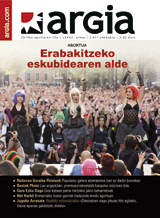

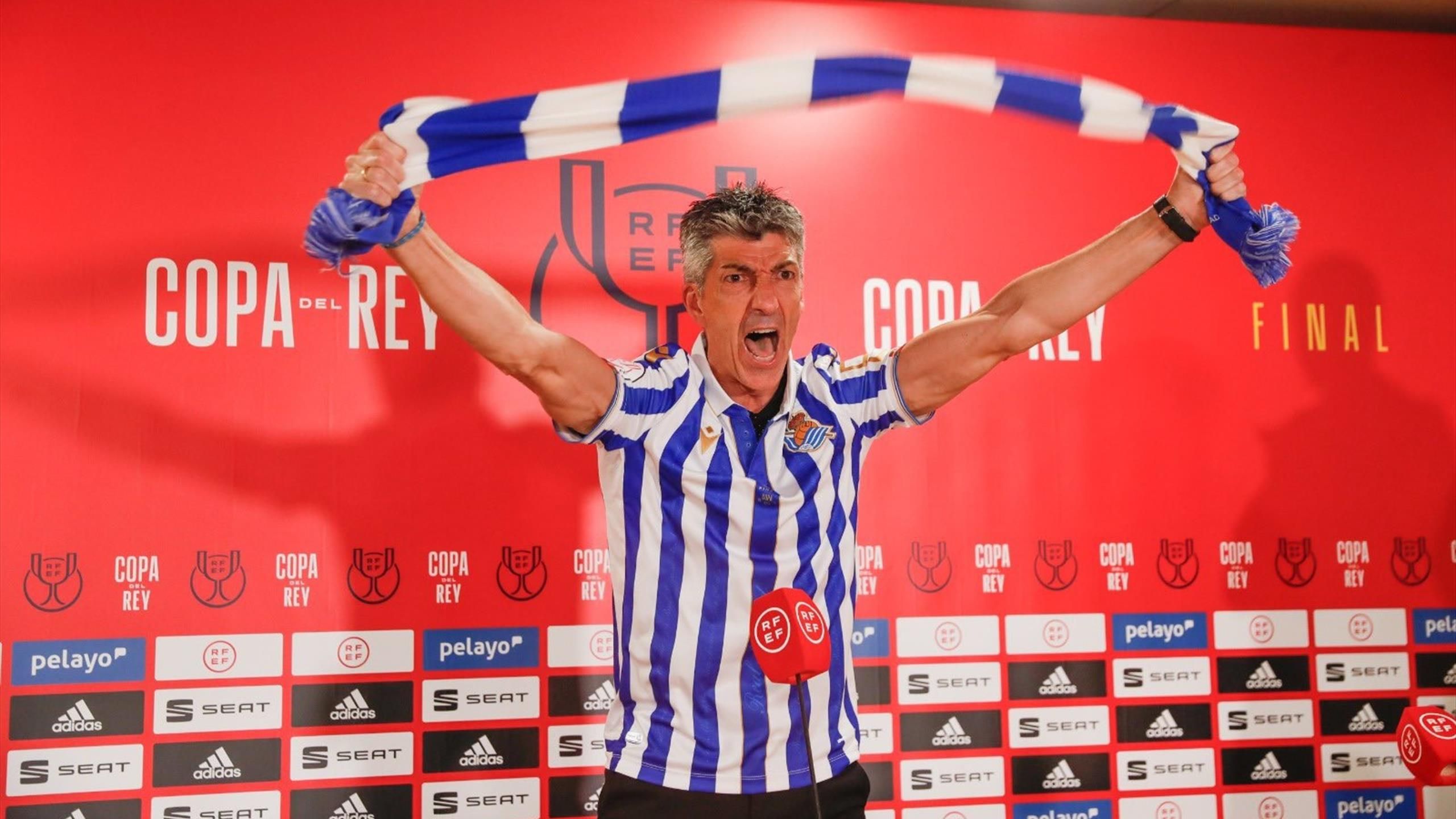
.jpg)



